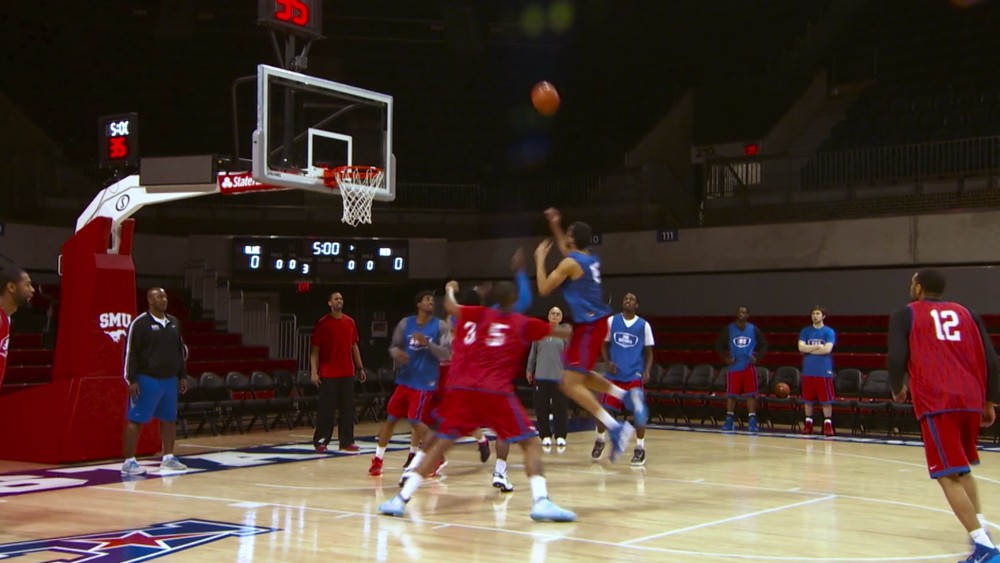
Lewis Rapkin is the very definition of a multi-hyphenate. He produced, directed and edited Live From Tokyo (2010), a documentary that explored the independent/underground music scene, and directed, edited. In 2018, he directed and composed the score for the documentary short Automatic on the Road, which tracks a literary A.I. robot as it attempts to write its version of the great American road trip while following the roads Jack Kerouac took decades earlier. And, in 2019, Rapkin wrote, produced, directed and scored the short film Vivir.
Rapkin is back in action with not one, not two, but three new projects. He composed the music for and edited Level Playing Field, a four-part sports documentary series featuring a range of stories that illuminate how public policies have contributed to inequities in the sports landscape and society at large. It premiered on HBO in September. Then there’s Twyla Moves, an upcoming feature documentary – which he edited and scored — that shines a spotlight on legendary dancer, director, and choreographer Twyla Tharp. And lastly, for the moment, he edited Citizen Ashe, a documentary devoted to Civil Rights icon and tennis legend Arthur Ashe.
Below the Line spoke with Rapkin about how he got his start, what he’s learned so far, how he juggles his myriad responsibilities, and what documentary aficionados can expect from Twyla Moves and Citizen Ashe.
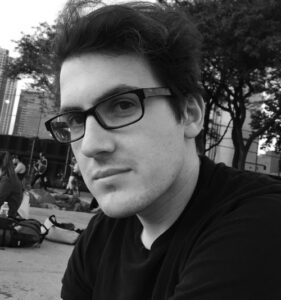
Below the Line: You wear a lot of hats. When people ask you what you do for a living, what’s your answer?
Lewis Rapkin: I usually say I’m an Editor and Composer.
BTL: How did you get your start in the business?
Rapkin: My first film was one that I directed, Live From Tokyo, about the underground music scene in Tokyo. That was a pretty guerilla-style passion project, and when I came back to New York with a box full of tapes to edit and negative money, I realized I needed a job with a paycheck. I was fortunate to have a friend who hooked me up with a night-shift gig on Circus, a six-hour PBS series covering a year embedded with the Big Apple Circus. So, my days were spent editing Live From Tokyo and nights were spent earning a paycheck and learning how a large-scale documentary series was made. I continued to work with the Directors Maro Chermayeff and Jeff Dupre on multiple projects, like Marina Abramovic: The Artist is Present, and Kehinde Wiley: Economy of Grace, and the career continued from there.
BTL: Everyone has influences, people we learn from based on what they’ve done and how they’ve done it, things they’ve succeeded at and things they’ve failed at. Who were some of your influences and please take us through what you learned from them, and from their successes and even failures.
Rapkin: I used to watch directors Michel Gondry’s and Spike Jonze’s DVDs on repeat. I loved the way they collaborated with music, interjected humor, and made art and creativity come to life on screen. They showed me how music and film could interact in a way that was greater than the sum of its parts. Even in scenes or films that aren’t specifically about music, I’ve taken their musicality to picture editing with me and I always try to be as imaginative as possible.
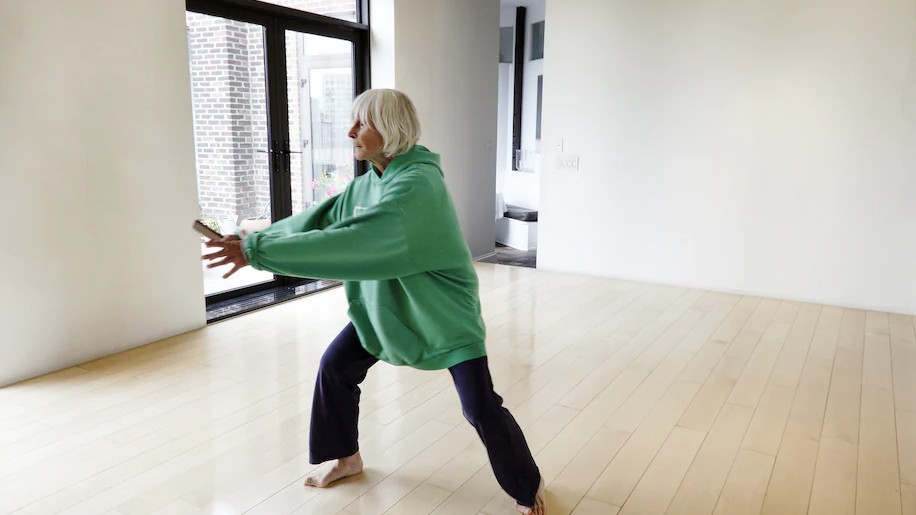
Also, through working on Twyla Moves, Twyla Tharp herself became a big influence. Her relentless, creative spirit and undying dedication to creating is incredibly inspiring. For Twyla Moves, I steeped myself in her creative works, living in the music she listened to and used, and drew inspiration from both the historical eras and varied artistic mediums to create a score that reflected this. Also, the rhythm of her dance was influential to my editing rhythm. She always emphasized the importance of creating dance/movement without music first and then adding the music. I often do the same with editing.
I try not to think about failures as anything other than learning experiences. But failures seem like a subjective, personal thing, so I wouldn’t want to speculate on anyone else’s failures.
BTL: You seem a bit like a one-man band, directing, editing and composing. But we all know most films, be they features or documentaries, are collaborative efforts. How do you decide, on each project, how much to handle yourself and how much to delegate?
Rapkin: Sometimes that’s a budget thing, but often the creative direction on a project will dictate what I do versus a collaborator. If a style of music feels right for a project, but it isn’t really my style, then I know I’m not going to be a good fit as the composer. I think knowing your strong suits and knowing when someone else would be a better fit is key. And you learn from collaborators, so it’s important to not get stuck in a mindset that you can do it all, all the time.
BTL: Once you delegate, how good are you at letting that person do his or her job?
Rapkin: Mutual respect and admiration is key in any collaboration, so I try to work with people who I trust will bring their best work to the table and vice versa. I like to give collaborators as much space to do their best work, rather than force my way onto others, and I hope for the same in return.
BTL: A question that’s always been of interest to me. An editor edits a film or a show and then another editor usually makes the trailer. What’s it like for an editor to be edited?
Rapkin: Cutting a trailer is a whole art unto its own, so I have nothing but respect for trailer editors. Also, when you’re so close to a film or show, it can be hard to narrow in on what needs to be communicated in such a short time. Fresh eyes are invaluable. You hope that the vibe of the series is captured and I’m usually super psyched to see the trailers when they come out.
BTL: Level Playing Field just debuted. What intrigued you about that project?
Rapkin: I like projects that feel like maiden voyages and everyone is ‘blue sky thinking’ to build something inventive from scratch. With this series, it was Vox’s first collaboration with HBO and the challenge was to combine all of the amazing style that Vox has developed of explaining and breaking down complicated subjects with the HBO character-driven, verité documentary style. It was genre-bending, by tackling both sports and politics, and style mixing, employing both informational and emotional storytelling. There was a lot of freedom and challenge in the collaboration. I never would have thought that my music would end up as the title music, but the blank page of possibilities that comes with a first season is always really exciting.
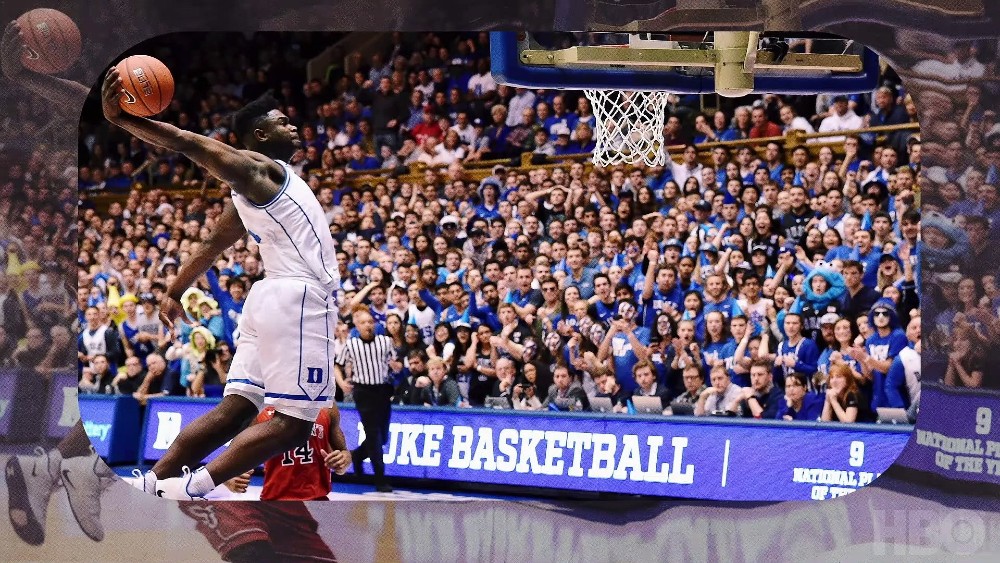
BTL: If you can be at all objective, how satisfied are you with how it came together?
Rapkin: It’s amazing. Just recently a top lawyer at the National Labor Relations Board issued a memo citing the “Misclassified” episode declaring that the institutions of college sports — including the NCAA, its member conferences, and universities — are misclassifying players as “student-athletes,” rather than employees entitled to basic worker protections and benefits and promised her agency would take legal action wherever possible. This is what the episode was all about. I couldn’t agree more with Director Joe Posner when he said that this is the kind of real-world impact that you always hope for with your work, but rarely does it happen in such a direct manner. It’s such an honor to work on a series that has this kind of impact.
BTL: Similar questions with Twyla Moves. What interested you about the documentary and, more specifically, Tharp herself?
Rapkin: Twyla Tharp is a force. I mentioned her earlier as an influence and it was a real treat to dive into her world. She has an undying need to create and is an avid consumer of art, music and always hungry for something new. I loved how she spent the first years of her career in the avant garde, experimenting, and honing her craft and concepts before moving into more commercial work. She taught me a lot about creating and collaborating. To see someone move from dance to film to television to theater while leaving her mark on it all was amazing. She also is a major genre-bender, which is something I have such curiosity and admiration for — as I mentioned with Level Playing Field. Taking pop music into the ballet world, or combining a modern dance troupe with a classically trained one, or using green screens in the 70s or motion capture in the 80s, she’s always been pushing the boundaries of what’s possible. So, in this film, I was drawn to seeing a master innovator create work over Zoom during the pandemic quarantine. It was an amazing opportunity to not only appreciate the decades of work she has under her belt, but to also see her create a new piece under these extraordinary conditions. The world of dance may have been shut down due to the pandemic, but there was no way Twyla was going to stop creating. It was inspiring, to say the least.
BTL: Dance is about motion. Editing is about, among other things, creating pace or… motion. Music complements that. What was it like to edit and compose for the actual dance moments in Twyla Moves?
Rapkin: This is one of the things that I really enjoy about the combination of music and editing: the shared rhythm and pace. I really like to have my scores and edits influence each other and whenever possible, I try to create the score while I’m editing, as opposed to at the end. This allows the rough cut of the edit and rough ideas of the music to evolve together and influence each other. To add dance into this mix with Twyla Moves was like turning a square into a cube; it really added a whole other dimension.
The phrasing in dance and in editing and scoring was really fun to merge. I certainly took cues from Tharp’s dance style to infuse the edit with the kind of frenetic rhythm at times and hypnotic beauty at others. Not being a dancer myself, I got a much better understanding of phrasing by watching her dances and trying to figure out when and where to make cuts and how the sequence of movements influenced the storytelling.
Tharp has worked with some incredible musicians, including heroes of mine like Philip Glass, David Byrne, and Billy Joel, to name a few. The latter two were interviewed for the film. To have my music alongside such legends in the film was very humbling and exciting.
BTL: How pleased are you with the finished film?
Rapkin: I was very glad that we were able to track the creation of new work and have a real-time story that showed step by step how Twyla creates new work. This combined with also being able to celebrate the many decades of her life and works in a more biographical fashion. The combination of the two made it a much better film than either one part could have been.
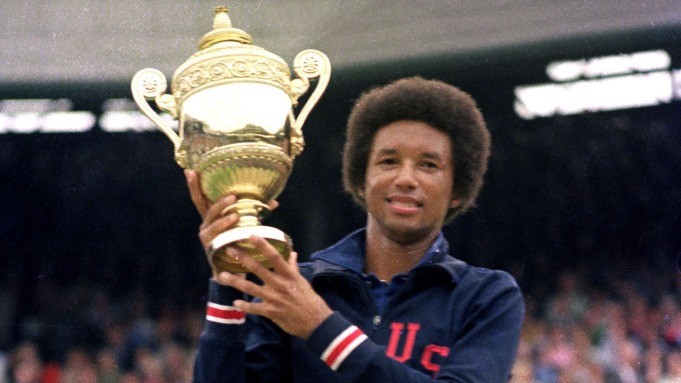
BTL: Let’s talk about Citizen Ashe. Arthur Ashe was a fascinating man and a great athlete. How familiar were you with him and his legacy, and what did you come to learn about him by immersing yourself in Citizen Ashe?
Rapkin: I knew he was a pioneer in more than just tennis, but I only knew the broad strokes. I came into the project with an abundance of curiosity, which is a great way to dive in. He was a true intellectual and really bucked the stereotype of athletes being more brawn than brains. His dignity and integrity on and off the court was amazing, especially given the immense adversity that he faced. I learned a lot about how he used his platform to champion human rights through his own brand of activism.
BTL: What’s the release plan for Citizen Ashe?
Rapkin: The film premiered at the Telluride Film Festival in September 2021 and will debut on CNN Films and HBO Max in 2022.
BTL: If you could map out the next steps in your career, what would they look like?
Rapkin: I hope to do more directing and continue making innovative films.
Level Playing Field is now on HBO Max, while Citizen Ashe will join it there in 2022.





